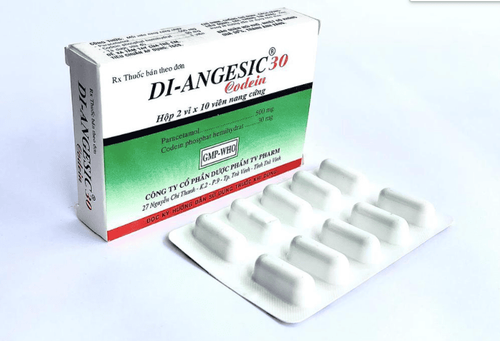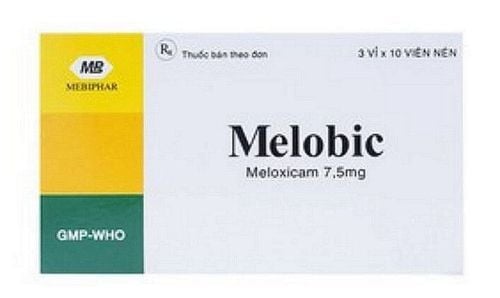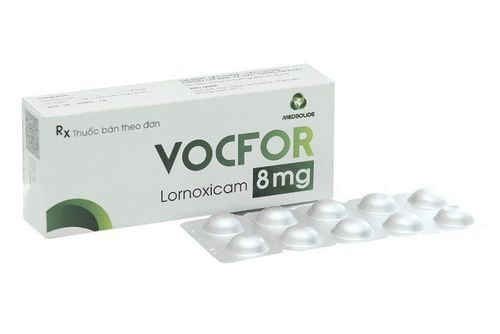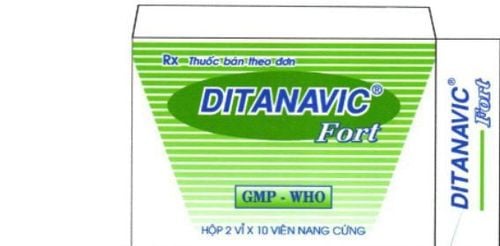This is an automatically translated article.
Posted by Doctor Bui Hanh Tam, Pain Clinic and Treatment, Department of Anesthesiology and Anesthesia, Vinmec Times City International HospitalAfter surgery, often urgent health-related problems have been completely or partially resolved. However, if there is persistent pain, the patient's quality of life will be greatly affected, even affecting an entire family if it is the main labor force.
1. What is persistent pain after surgery?
Often, acute surgery-related pain can be effectively resolved with multimodal pain management (combination of intravenous, oral, suppository, neuro-anesthesia, injectable local anesthetics) surgery...). Acute pain will go away in 7-10 days. After this time, if the patient still has pain that interferes with daily activities and sleep, it is called persistent pain.2. Why is there persistent pain after surgery?
Surgery is always accompanied by damage to soft tissue and surrounding tissues, including nerves. As a result, motor nerves, sensory nerves, autonomic nervous system, and possibly a mixture of all three types of nerves are damaged. Post-surgery recovery or scar healing will take place within 7-10 days if there are no complications of surgery. Sensory nerves also heal if acute pain is well controlled. However, in some cases damage cannot be completely ruled out - an inflammatory response of the tissue causes irritation of the nerves after wound healing. The reason is that biochemical and humoral reactions are very complex. Nerves are still stimulated day and night by the inflammatory response, causing persistent pain.This phenomenon is not easily detected with the naked eye, because the inflammatory response still occurs at the cellular level. Therefore, when the wound has healed, the patient is still in pain. This is more likely to happen in people with some special conditions such as: Ever had surgery; ready to be in pain; have a neurological disease; heart-related diseaes; diabetes or cancer, have been treated with chemotherapy, radiation therapy; depression or systemic illness. Pain is individual. So please respect how the patient feels after surgery with the wound healed but still complaining of pain somewhere uncomfortable, which may or may not be related to the surgical area. That is persistent pain.

Vì sao lại có hiện tượng đau dai dẳng sau phẫu thuật?
3. Any surgery has the potential for persistent pain after surgery
Recent studies in the world in developed countries show that 10 - 50% of patients have persistent pain after surgery such as inguinal hernia repair, mastectomy, thoracic surgery, surgery. cosmetic surgery, amputation of legs - arms, coronary bypass surgery, surgery to place artificial devices for hip, knee joints. In which, 3 types of surgery have a high rate of persistent pain after surgery: leg amputation (30-50%), coronary bypass surgery (30-50%) and thoracic surgery (30-50%) -40%). The rate of persistent pain after cesarean section is about 10%.The above numbers show that with any type of surgery there is a potential risk of persistent pain after surgery.
However, even in advanced countries in the world, only 2% of cases with persistent or chronic pain after surgery are referred to Pain Clinic. This fact shows that patients everywhere in the world, not only in Vietnam, are assuming that surgery must be painful and that postoperative pain is normal and must live with pain.
Did you know that persistent pain can be completely resolved with early diagnosis and proper treatment. Treated persistent pain means you should feel no pain at rest or with movement. The first important thing is that the pain doctor knows if you or a loved one is in pain in order to intervene.
On the contrary, if persistent pain is not treated in time, the patient's risk of living with chronic pain is very high. At this point, pain treatment will become extremely complicated because the pain signal now not only stops at the peripheral level but has created a conduction pathway that causes changes at the central level or called alteration. altered sensory perception maps in the cerebral cortex. Feeling pain right now with descriptive words such as: Burning pain, pain like electric shock, pain like needles, stabbing pain... will not give up the patient at any time of the day, even when walking sleep.
Therefore, do not hesitate to go to the doctor or consult a doctor if after surgery you or your loved one still have persistent pain, absolutely do not assume and live with persistent pain with the thought that surgery it must hurt. Pain treatment doctors will have tools and means to help assess pain levels, classify pain based on history, medical history, surgical process to find the right solution for each person.
4. Timely solution - Effective intervention
Family and understanding, sharing, and psychological, social, and economic support will help improve the quality of life of patients with persistent pain after surgery. This is extremely meaningful in helping to improve the effectiveness of treatment, helping patients after surgery to return to a state of balance and stabilize their life rhythms soon.Some patients think that complaining of pain often shows weakness, sentimentality, and is not worth it, so they often deny or hide the pain. If persistent pain is not promptly treated within 3 months of surgery, the following time will later turn into chronic pain. Through this article, we hope that if after surgery, you or your loved one still suffers from severe pain, please be more open, share more with your loved ones and seek medical support as soon as possible. good.
5. How to treat persistent pain after surgery?

Thủ thuật tiêm phong bế thần kinh giảm đau bằng các thuốc gây tê và thuốc giảm viêm sẽ giúp giảm phản ứng viêm thần kinh, đồng thời chặn lại các tín hiệu đau
Next, with the procedure of injecting nerve block to relieve pain with anesthetics and anti-inflammatory drugs, it will help reduce the neuroinflammatory response, and at the same time block the pain signals that are being sent to the brain day and night. This procedure is done during the day and the patient can go home to rest.
Treatment results can be seen after repeated injections of blockade 2 - 3 times depending on the response of each person. The procedure is to correct the false signals caused by the irritated and damaged sensory nerves when they themselves have not recovered after surgery, and help restore nerve conduction
At General Hospital At Vinmec International Department, doctors are always ready to listen to patients' questions and difficulties after treatment and surgery, even though the incision has healed but persistent pain affects quality of life. You can contact the surgeons or doctors at the Pain clinic to find out timely intervention solutions, to stop the pain before it becomes chronic pain. intractability
Please dial HOTLINE for more information or register for an appointment HERE. Download MyVinmec app to make appointments faster and to manage your bookings easily.













